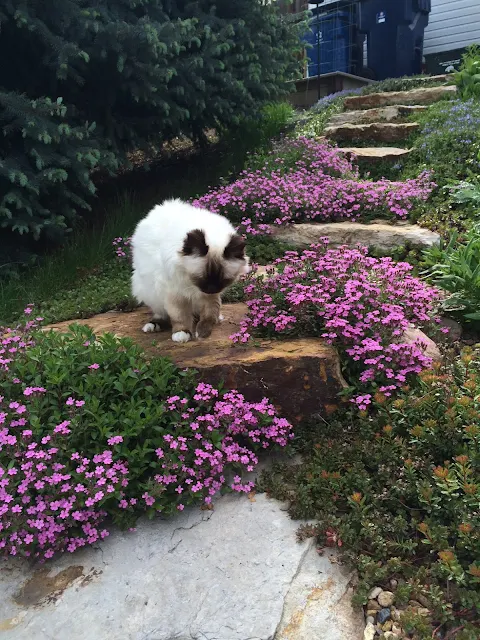 |
| Mocha the Sacred Birman in the Riparian Garden |
The plant's name is derived from the Latin words for "soap" and "sap". I don't like the sticky feeling but execute the deadheading barehanded, because for some reason I can't get the flick right with gardening gloves on. I am ruthless but the tiny black seeds invariably make their way between stone steps or into the gravel mulch, and I discover volunteers here and there every year. In the video below, the rock soapwort is duking it out with another xeric groundcover blooming at this time, Chinese Mountain Stonecrop.
Despite never being irrigated, the Rock Soapwort must produce a lot of nectar, as it draws the attention of hummingbird moths and it's always covered with bees.
| Whitelined Sphinx Moth |
3 comments:
I'm so glad you posted this! Recently, I bought two soapwort plants (Not rock soapwort -- soapwort officinalis, I think). I'd read that it was attractive to pollinators, but I wasn't sure about honeybees. So glad to read that it does!!!
Your path is stunning, btw!!!
Thanks @Julie D. I am glad you like it. I just stopped by your blog and am adding you to my Feedly.
Post a Comment
Join the Conversation. Leave a comment.